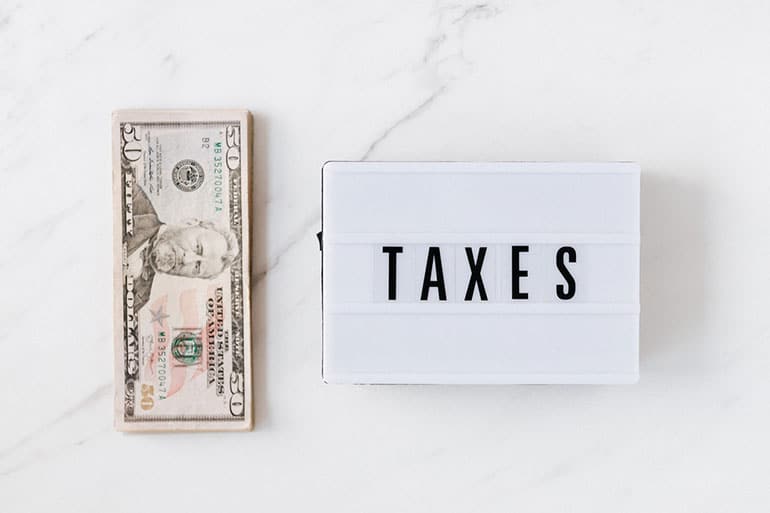Introduction – The Canada Revenue Agency’s Power to Reassess
Prince v MNR (2020 FCA 32) illustrates that the Canada Revenue Agency’s tax-reassessment powers come with few limits. The Federal Court of Appeal held that the Canada Revenue Agency could validly reassess a taxpayer even though the taxpayer’s unresolved voluntary-disclosure application might bear on the correctness of those reassessments.
Above all, the Prince case reveals the broad tax-assessing powers of CRA and why you should retain an experienced Canadian tax lawyer early in the CRA tax-dispute process. Without the aid of an experienced Canadian tax lawyer, you might find yourself seeking relief in an inappropriate forum. The Prince taxpayer, for instance, sought judicial review under the Federal Courts Act when he probably should have pursued the issue solely under the tax-dispute process in the Income Tax Act.
After reviewing the Canada Revenue Agency’s tax-reassessment powers, this article examines the Prince decision and discusses tax tips that you may draw from that decision.
The CRA’s Tax Reassessment Powers under Section 152 of the Income Tax Act
Generally, the Canada Revenue Agency will assess income tax in response to a filed income-tax return. But the Income Tax Act permits the Canada Revenue Agency to assess or reassess tax payable at any time and as many times as necessary—even if the taxpayer hasn’t filed a tax return for that year. Subsection 152(4) allows the CRA to “at any time make an assessment, reassessment or additional assessment of tax for a taxation year.” Subsection 152(7) says that, when assessing tax, the Canada Revenue Agency isn’t “bound by a return or information supplied by or on behalf of a taxpayer,” and that the CRA may assess tax payable “notwithstanding a return or information so supplied.” Subsection 152(7) also says that the CRA may assess tax payable “if no return has been filed.” This provision underlies the Canada Revenue Agency’s power to issue an arbitrary assessment—that is, an assessment whereby the CRA estimates a person’s tax payable in response to an unfiled tax return.
Moreover, a tax assessment or reassessment is presumptively correct and binding. Subsection 152(8) of the Income Tax Act deems an assessment or reassessment “to be valid and binding notwithstanding any error, defect or omission in the assessment.” In particular, the tax assessment or reassessment is valid and binding unless it is “varied or vacated on objection or appeal.” This means that, if you disagree with a tax assessment or reassessment, you must invoke the tax-dispute process under the Income Tax Act—e.g., objecting to the CRA’s Appeals Division and then appealing to the Tax Court of Canada. Unless the impugned assessment is varied or vacated on objection or appeal, you’re stuck with the tax debt, and the CRA may enforce upon that tax debt.
There is, however, a general limitation period on the CRA’s ability to reassess a particular tax year. Subsection 152(4) of the Income Tax Act generally prohibits the Canada Revenue Agency from assessing or reassessing a tax year more than three years after the day that the CRA sent the original notice of assessment for that tax year. Still, the CRA may reassess an otherwise statute-barred year if, when filing the tax return, the taxpayer (i) committed fraud or (ii) made a misrepresentation attributable to neglect, carelessness, or wilful default. (The CRA bears the onus of proving that the taxpayer committed fraud or made such a misrepresentation.)
Prince v Minister of National Revenue, 2020 FCA 32

In 2015, the Canada Revenue Agency commenced an audit of Mr. Sam Prince’s income-tax returns. The CRA tax auditor requested that Mr. Prince complete a detailed questionnaire about his offshore assets and provide bank-account statements for accounts that Mr. Prince held in Israel and the U.S.A. Mr. Prince provided none of the information requested.
Mr. Prince’s refusal to cooperate eventually forced the CRA tax auditor to obtain the information directly from the various banks at which Mr. Prince held accounts.
In June 2017, the CRA tax auditor sent Mr. Prince a proposal letter outlining the manner in which the Canada Revenue Agency intended to reassess Mr. Prince’s 2005 through 2014 tax years. The letter invited Mr. Prince to provide the CRA tax auditor with further information if he disagreed with the proposal.
Two weeks later, after receiving the proposal letter but before the CRA issued the proposed reassessments, Mr. Prince filed an application under the Canada Revenue Agency’s Voluntary Disclosures Program (VDP). The Voluntary Disclosures Program allows non-compliant taxpayers to voluntarily come forward and correct omissions and errors in past tax filings. If the CRA determines that a taxpayer’s voluntary-disclosure application is valid, the Canada Revenue Agency will waive the penalties and prosecution that the taxpayer might otherwise have faced. Notably, to be valid, a voluntary-disclosure application must be “voluntary”—that is, when making the application, the taxpayer must be free of any audit, investigation, or enforcement action by the Canada Revenue Agency.
In 2018, the Canada Revenue Agency rejected Mr. Prince’s voluntary-disclosure application. The CRA decided that Mr. Prince’s application wasn’t voluntary because, at the time that he filed the application, Mr. Prince was the subject of an active income-tax audit that had preceded the application by almost two years.
Shortly after receiving the decision, Mr. Prince requested that the Canada Revenue Agency conduct a second administrative review of his voluntary-disclosure application.
Although the CRA had already reassessed Mr. Prince’s 2005 through 2014 tax years and concluded the audit, in August 2018, the CRA decided yet again to audit Mr. Prince’s income-tax returns. This time, the audit concerned the 2007 through 2016 tax years.
Again, Mr. Prince refused to provide the information that the CRA tax auditor requested.
On December 17, 2018, the CRA income-tax auditor sent Mr. Prince a proposal letter outlining the manner in which the Canada Revenue Agency intended to reassess Mr. Prince’s 2007 through 2016 tax years. As with the June 2017 proposal letter, this letter invited Mr. Prince to provide the CRA tax auditor with further information if he disagreed with the proposal. The proposal letter also explained that, if Mr. Prince provided no further information, the CRA would reassess as indicated in the letter.
In response, Mr. Prince sought judicial review of the income-tax auditor’s December 17, 2018 letter and an interlocutory injunction barring the Canada Revenue Agency from issuing the reassessments proposed in that letter. In support of the injunction request, Mr. Prince argued that the CRA should not reassess him before deciding upon his request for a second administrative review of his voluntary-disclosure application.
The Federal Court refused to grant relief. The court dismissed Mr. Prince’s application for judicial review and rejected his motion for an interlocutory injunction. The court observed that the tax auditor’s proposal letter didn’t constitute an actual decision since the letter simply warned that the CRA intended to reassess Mr. Prince, and it gave Mr. Prince additional time to deliver further submissions. Because the tax auditor’s proposal letter didn’t constitute a decision, it wasn’t subject to judicial review. In addition, the court pointed out that, even if the proposal letter were itself a decision, the Federal Court would still have no jurisdiction to hear an application for judicial review. Section 18.5 of the Federal Courts Act would preclude the Federal Court from reviewing the decision because the Income Tax Act expressly provides for an appeal to the Tax Court of Canada. The court also rejected Mr. Prince’s request for injunctive relief, seeing no prejudice or harm to Mr. Prince if the CRA reassessed him before deciding upon his request for a second review of his voluntary-disclosure application.
Mr. Prince appealed the Federal Court’s decision to the Federal Court of Appeal. By the time the Federal Court of Appeal heard the case, the Canada Revenue Agency had reassessed Mr. Prince’s 2007 through 2016 tax years and had rejected Mr. Prince’s request for a second review of his voluntary-disclosure application. So, Mr. Prince now requested that the appellate court stay his 2007 through 2016 tax reassessments until he had exhausted all recourse mechanisms contemplated by the CRA’s Voluntary Disclosures Program—including seeking judicial review of the CRA’s decision to reject his request for a second review of his voluntary-disclosure application and pursuing any appeals thereafter.
The appellate court had none of it. The court dismissed Mr. Prince’s appeal for three reasons. First, if the CRA ultimately accepts Mr. Prince’s voluntary-disclosure application following his judicial-review application, the CRA would correct the tax reassessments by issuing new reassessments in light of the relief granted under the VDP. Second, Mr. Prince’s request would effectively override the CRA’s power under subsection 152(4) to reassess “at any time.” Third, when a taxpayer objects to a tax assessment or reassessment, subsection 225.1(1) of the Income Tax Act precludes the CRA from enforcing upon tax debts arising from the disputed assessment or reassessment. Likewise, subsection 225.1(3) prevents the CRA from enforcing upon tax debts that are subject to an appeal before the Tax Court of Canada. In sum, because Mr. Prince wasn’t prejudiced by the reassessments of his 2007 through 2016 tax years, the Federal Court of Appeal saw no reason to reverse the lower court’s decision.
Pro Tax Tips: Understanding the Tax-Assessment Process and Tax-Dispute Process
Judicial review is a process allowing you to challenge the fairness or reasonableness of a decision made by an administrative body, like the Canada Revenue Agency. Yet, as mentioned above, section 18.5 of the Federal Courts Act effectively bars the Federal Court from hearing a judicial-review application concerning a substantive tax issue. These issues fall under the exclusive jurisdiction of the Tax Court of Canada, and the Income Tax Act contains specific rules dealing with the tax-dispute process.
This means that taxpayers need to inform themselves about when to pursue relief by judicial review and when to pursue relief by an objection or appeal under the Income Tax Act. Generally, an issue relating to a tax assessment or reassessment will require you to file a tax objection or tax appeal under the Income Tax Act. The Canada Revenue Agency’s rejection of your voluntary-disclosure application, on the other hand, might be better addressed by a judicial-review application. For advice on which process is appropriate in your circumstances, consult one of our experienced Canadian tax lawyers.
As mentioned above, a tax assessment or reassessment is valid and binding unless it is “varied or vacated on objection or appeal.” This means that, if you disagree with a tax assessment or reassessment, you must invoke the tax-dispute process under the Income Tax Act—e.g., objecting to the CRA’s Appeals Division or appealing to the Tax Court of Canada. Generally, you must object within 90 days of the date on the tax assessment or reassessment (or appeal within 90 days of the date on the confirmation), but you may qualify for a deadline extension. If you fail to object or appeal within the statutory deadlines, however, the assessment is deemed to be valid and binding, and you’ll be stuck with the tax debt.
So, if you have been assessed or reassessed, speak with one of our experienced Canadian tax lawyers today. We can ensure that you deliver a forceful, thorough, and cogent notice of objection or notice of appeal. We can also represent you throughout all stages of your tax dispute, from tax objection with the CRA’s Appeals Division to hearing before the Tax Court of Canada. If you are offside with your tax obligations, we can also assist you with a voluntary-disclosure application.
Disclaimer:
"These articles provide information of a general nature only. It is only current at the posting date. It is not updated and it may no longer be current. It does not provide legal advice nor can it or should it be relied upon. All uber tax deduction situations are specific to their facts and will differ from the situations in the articles. If you have specific legal questions you should consult a lawyer.

